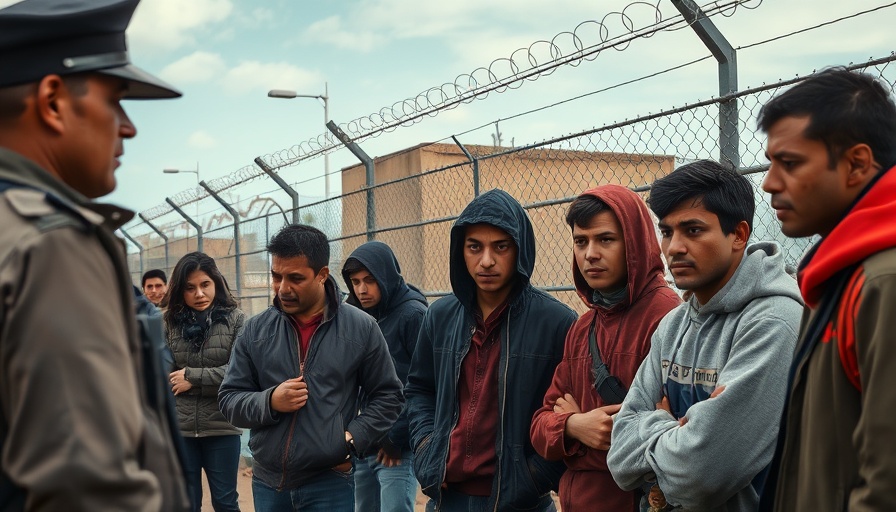
Understanding the Plight of Asylum Seekers in ICE Detention
For many in North County San Diego, the recent stories of asylum seekers like Arsenii have raised critical questions about the treatment of migrants who successfully navigate the complicated U.S. immigration system yet find themselves trapped in bureaucratic limbo. Armed with a legal status to reside in the U.S., these individuals are nonetheless held in ICE detention centers, often for prolonged periods that can extend for months or even years, seeking a glimmer of hope at the end of their harrowing journey.
The Psychological Toll of Detention
As Arsenii illustrated through his heart-wrenching testimony, success in obtaining asylum does not equate to freedom. "I’m irritated. I’m depressed. I’m sad," he expressed, revealing how the emotional strain of confinement in an environment where he feels unsafe—due to homophobic detainees—adds to his suffering. His struggle is not unique; many immigrants face similar psychological challenges while in detention, having escaped violence or persecution only to grapple with a different kind of trauma as they await their future.
Why Are Asylum Seekers Held So Long?
Legal experts have highlighted alarming patterns around the detention of migrants from Russia and other former Soviet states, suggesting that officials choose to hold these individuals for the duration of their asylum proceedings rather than granting them release after initial screenings. This practice, which appears inconsistent with the policies applied to other nationalities, reveals a gap in the system whereby vulnerable populations face undue hardship while awaiting verdicts on their asylum claims.
Changes Under Recent Administrations
The landscape for asylum seekers has shifted significantly under both the Biden and Trump administrations. Immigration attorneys report that under the current administration, there has been a noticeable trend of longer detentions and reluctant releases. The consequences are dire as asylum wins are appealed, entrenching a winter of uncertainty for many. What does this mean for local residents? The ripple effects of these policies can influence community dynamics in North County, shaping how residents view immigration and human rights.
Local Implications of National Policy
For the residents of North County San Diego, the plight of individuals like Arsenii speaks to larger issues of justice and compassion within our immigration policies. Understanding these stories could foster greater empathy within communities and challenge stereotypes that often surround immigrant narratives. As the debate continues on immigration reform, public awareness on anti-immigrant sentiment and the repercussions of current policies becomes crucial.
Take Action for Change
Residents can play a role in advocating for policy changes that promote humane treatment of asylum seekers. Engaging in community discussions, contacting elected representatives, and supporting local organizations dedicated to migrant welfare can create meaningful impact. It is essential for our voices to resonate in the face of injustice, ensuring that those like Arsenii are not forgotten.
 Add Row
Add Row  Add
Add 




 Add Row
Add Row  Add
Add 

Write A Comment